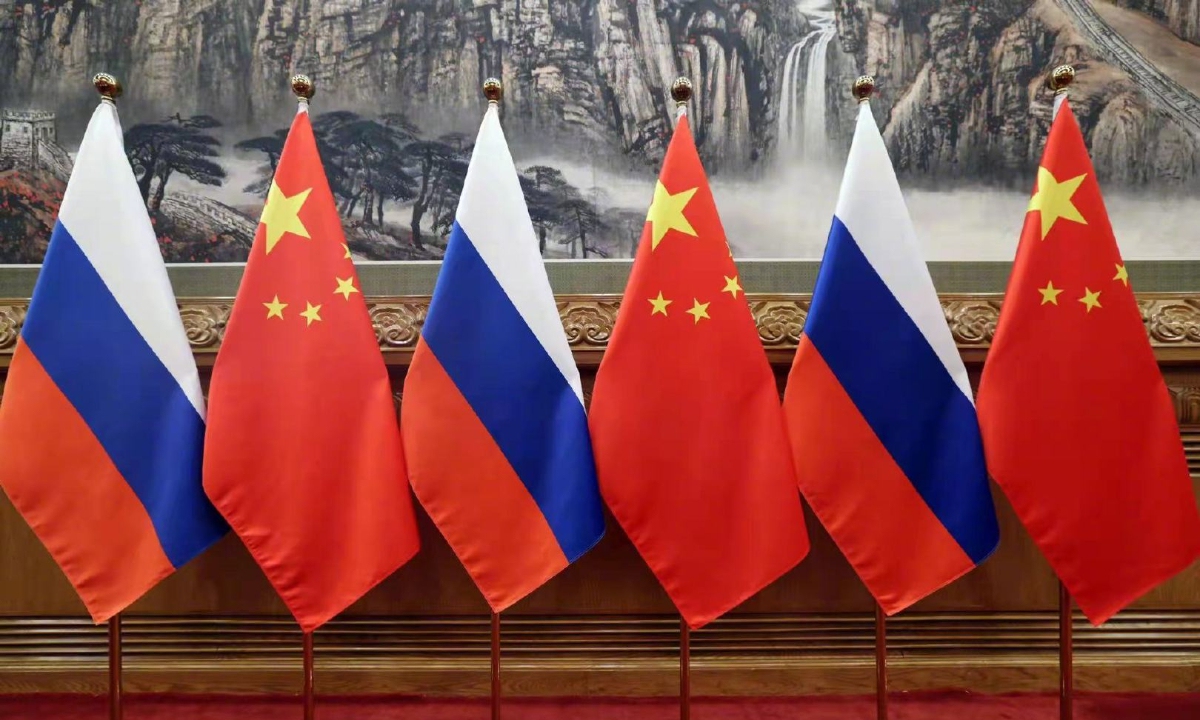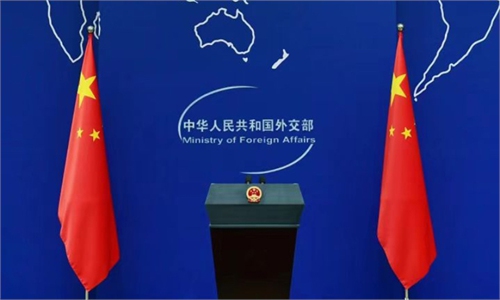Xi talks to Putin, says China happy to see positive efforts to defuse Ukraine crisis
Bilateral ties show China, Russia good neighbors, true friends

China Russia Photo: Xinhua
Chinese President Xi Jinping said Monday that China is happy to see Russia and relevant parties make positive efforts to defuse the Ukraine crisis. Xi made the remarks when talking to Russian President Vladimir Putin over phone.
Xi stressed that at the beginning of the overall escalation of the Ukraine crisis, he put forward the "four-should" and other basic proposals for resolving the crisis.
In September last year, China and Brazil, together with some countries of the Global South, set up the Group of Friends for Peace on the Ukraine crisis to create an atmosphere and accumulate conditions for promoting the political settlement of the crisis, Xi noted.
The two sides also agreed to maintain communication and coordination through various means.
Xi also said that history and reality show that China and Russia are good neighbors that cannot be moved away, and true friends who share weal and woe, support each other and achieve common development.
Xi said the two leaders had a video meeting before the Chinese Spring Festival during which they made plans for the development of China-Russia relations throughout the year and strengthened coordination on a series of major international and regional issues.
Various departments from both countries are steadily advancing cooperation in all fields in accordance with the consensus reached by the two leaders, including carrying out activities to commemorate the 80th anniversary of the victory of the Chinese People's War of Resistance against Japanese Aggression and the 80th anniversary of the victory of World Anti-Fascist War, Xi said.
Xi said China-Russia ties enjoy strong internal driving force and unique strategic value, adding that the relationship does not target any third party nor would it be influenced by any third party. The development strategies and foreign policies of China and Russia are for the long-term, he said.
Despite changes in the international situation, China-Russia relations will proceed with ease, which will help each other's development and revitalization, and inject stability and positive energy into international relations, he said.
Li Haidong, a professor at China Foreign Affairs University, told the Global Times on Monday that the talks between Xi and Putin highlighted that the China-Russia relationship is a strategic one that can withstand interference from external factors and will not lose its sustainability due to the change of a third party.
The talks between the two heads of state are not limited to the Ukraine crisis, but also involve specific guidance on how to maintain a higher level of interaction and strategic coordination and cooperation between the two sides in the next stage, Li said.
Given the current turbulence in the world economic and security order, the strategic coordination and cooperation between China and Russia inject certainty and positive energy into international strategic stability, the expert said.
Uncertainty remains
On Monday, the UN Security Council is set to vote on two dueling resolutions - one backed by Kiev and Europe demanding an immediate withdrawal of Russian forces from Ukraine, and the other proposed by the US which CNN said does not condemn Russia, nor makes any acknowledgement of Ukraine's territorial integrity.
The two resolutions highlight the tension between the US, Ukraine and European countries in the five weeks since President Donald Trump took office and has opened talks with Russia after years of isolation in a bid to end the war, Associated Press reported Monday.
On Monday, European Commission chief Ursula von der Leyen and other members of the EU's executive branch visited Kiev to show support for Ukraine on the third anniversary of the conflict.
UK Prime Minister Keir Starmer and French President Emmanuel Macron are making tag-team visits to Washington this week as Europe attempts to persuade Trump not to abandon Ukraine in pursuit of a peace deal, PBS reported.
Macron is set to meet Trump on Monday local time and Starmer on Thursday, per Politico.
Li believes the European leaders are still trying their very best to repair the relationship despite the lack of US interest.
Europe's security architecture has long centered on NATO, but after the painful price paid in the past three years, the current situation also means Europe has an opportunity to seriously think about its security structure and transatlantic alliance, the expert said.
Zhao Junjie, senior research fellow at the Institute of European Studies at the Chinese Academy of Social Sciences, told the Global Times on Monday that if US-Russia talks can lead to a substantial peace deal, it is good news for Europe.
However, the nature of US politics means there is a possibility of a US return in the future, which adds to the uncertainty of whether Europe can take the initiative to strengthen its strategic autonomy, Zhao said.
Ukrainian President Volodymyr Zelensky stated on Sunday at a forum that it is important for Ukraine to speak with and engage China in negotiations. He mentioned the large trade turnover with China before the war, saying "I believe that we can have economic relations with China and I believe that China should be present especially at the moment when the territorial integrity and sovereignty of Ukraine can be discussed," according to Ukrainian news outlet UNN.
In response to Zelensky's remarks, as well as to whether China will propose any new plans or initiatives to actively contribute to promoting peace in Ukraine, Chinese Foreign Ministry spokesperson Lin Jian said on Monday that China's position on the Ukraine crisis is consistent and clear.
Since the full escalation of the Ukraine crisis, China has stayed in communication with relevant parties and been committed to building consensus for ending the conflict and paving the way for peace talks, Lin said.
China will always stand firm on the side of peace, uphold an objective and fair position and continue to work with the international community to play a constructive role in advancing the political settlement of the crisis, Lin said.
Li said that China's security vision and practices are of great significance at a time when various parties are scrambling to find a way out of the three-year-long crisis.
The China vision focuses on common, comprehensive, cooperative and sustainable security and differs from the alliance-based security architecture that has dominated Europe for decades, Li said.
China's role in the crisis, including its communication with all relevant parties and efforts to promote peace talks and political solution, demonstrated that China is walking the talk and remains committed to its vision, Li said.



